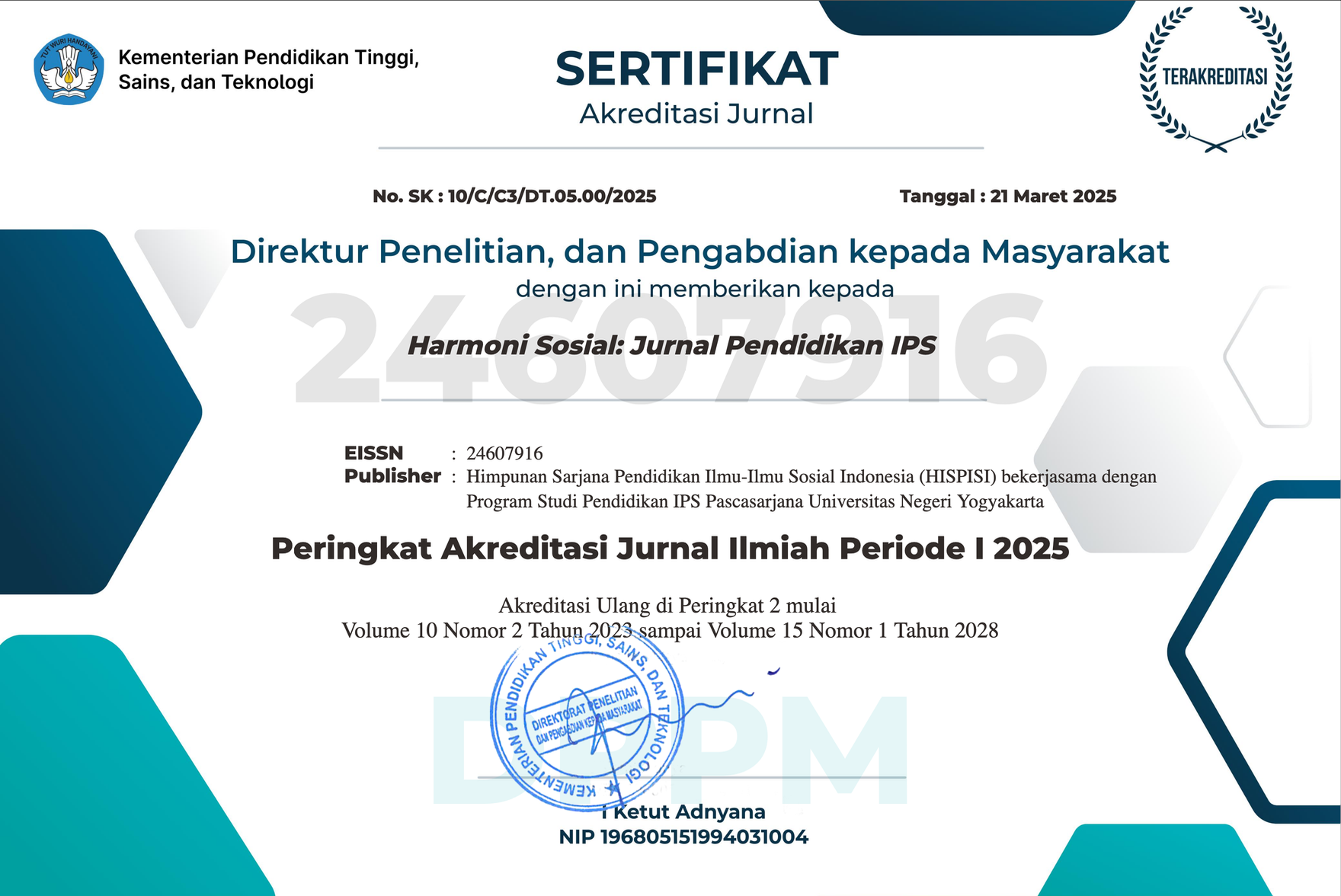Evaluating social inclusion for the Bangladesh settlers in Nakasi: Post-urban regeneration
Downloads
This paper examines the concept of the government's 'social housing' policies for the urban poor and assesses their effectiveness. This research aimed to study an upgraded squatter settlement using subdivision and urban renewal concepts and gauge the social effects of the project as experienced by the residents. The paper also suggests how these state-sponsored programs can be improved and enhanced. Thus, it also reviews similar programs in other cities and countries as lessons to be learned. Due to the continuous population growth in the Suva-Nausori corridor, the demand for housing, exceptionally affordable housing, is exponentially growing, and this has led to real estate speculations and bubbles, substandard housing, overcrowding, squatting on public and private lands and homelessness, and this has led to other social problems. A field research study was carried out in 3 lower-income settlements within the affluent district of Nakasi. The findings revealed the need for more government interventions and a more strategic approach to rectify the severe shortfall of housing stock. The paper also notes the importance of the need for a paradigm shift in the state's housing policy to provide low-cost built housing, as opposed to just land length of service, which could not address some crucial issues experienced by the settlers.
Downloads
Bougie, E., Kohen, D., Penney, C., SeneÌcal, S., & Guimond, E. (2015). Community well-being among the registered Indian and non-Aboriginal populations in Winnipeg: Trends over time and spatial analysis. Aboriginal Policy Studies, 4(1). https://doi.org/10.5663/aps.v4i1.21037
Bryant-Tokalau, J. J. (2014). Urban squatters and the poor in Fiji: Issues of land and investment in coastal areas. Asia Pacific Viewpoint, 55(1), 54–66. https://doi.org/10.1111/apv.12043
Creswell, J. W., & Creswell, J. D. (2018). Research design: Qualitative, quantitative, and mixed methods approaches (5th ed.). SAGE Publication. https://spada.uns.ac.id/pluginfile.php/510378/mod_resource/content/1/creswell.pdf
Fiji Bureau of Statistics. (2018a). 2017 population and housing census relase 1: Age, sex, geography and economic activity. Fiji Bureau of Statistics. https://www.statsfiji.gov.fj/index.php/census-2017/census-2017-release-1
Fiji Bureau of Statistics. (2018b). Building material price index-June 2018. Fiji Bureau of Statistics. https://fbos.nso.spc.int/latest-releases/consumer-price-index/building-material-price-index/building-material-price-index-june-2018/
Fiji Bureau of Statistics. (2018c). Fiji population and housing census 2017. Fiji Bureau of Statistics.
Gauly, B., Volgmann, V., Ramírez, D., Gauly, J., & Volgmann, F. (2022). Urban development agencies: Potentials for the sustainable management of cities in the global south. Deutsche Gesellschaft fí¼r Internationale Zusammenarbeit (GIZ) GmbH. https://www.giz.de/de/downloads/giz-2022-studie-urban-development-agencies.pdf
Gurran, N. (2003). Housing policy and sustainable urban development: Evaluating the use of local housing strategies in Queensland, New South Wales and Victoria. Australian Housing and Urban Research Institute. https://apo.org.au/sites/default/files/resource-files/2003-06/apo-nid6776.pdf
Hassan, A. (2014). Sustainable development of low cost urban housing in Fiji: A case study of the Fiji housing authority [The University of the South Pacific]. http://144.120.32.107/gsdl/collect/usplibr1/index/assoc/HASH6f22.dir/doc.pdf
Hu, R., Follini, C., Pan, W., Linner, T., & Bock, T. (2017). A case study on regenerating informal settlements in Cairo using affordable and adaptable building system. Procedia Engineering, 196, 113–120. https://doi.org/10.1016/j.proeng.2017.07.180
Kebede, A. (2012). Analysis of public reaction to the newly amended and introduced urban land lease policy of Ethiopia and its future implications the case of Akaki Kaliti Sub-city, Addis Ababa, Ethiopia [Addis Ababa University]. http://etd.aau.edu.et/handle/123456789/11327
Ministry of Housing of the Republic of Fiji. (2011). National housing policy review. Ministry of Housing of the Republic of Fiji. https://www.housing.gov.fj/_files/ugd/01d667_bdf349b669f84a7ebe1cf92ef578cdcc.pdf
Morse, J. M. (1991). Evaluating qualitative research. Qualitative Health Research, 1(3), 283–286. https://doi.org/10.1177/104973239100100301
Nadan, S., & Muertigue, R. (2018). An empirical analysis of the municipal taxation on strate titles against torrens in Fiji. International Journal of Information Research and Review, 5(3), 5336–5342. https://www.researchgate.net/profile/Rosalie-Muertigue/publication/363799717_AN_EMPIRICAL_ANALYSIS_OF_THE_MUNICIPAL_TAXATION_ON_STRATA_TITLES_AGAINST_TORRENS_IN_FIJI/links/632ea6ba165ca2278769ed5d/AN-EMPIRICAL-ANALYSIS-OF-THE-MUNICIPAL-TAXATION-ON-STRATA-
Olsen, W. (2004). Triangulation in social research: Qualitative and quantitative methods can really be mixed. In M. Holborn (Ed.), Developments in sociology (pp. 103–118). Causeway Press. https://www.researchgate.net/profile/Wendy-Olsen/publication/237337766_FINAL_VERSION_Forthcoming_as_a_chapter_in_Developments_in_Sociology_2004_ed_M_Holborn_Ormskirk_Causeway_Press/links/579b8abd08ae5d5e1e138044/FINAL-VERSION-Forthcoming-as-a-chapter-in-D
Patton, M., & Cocharn, M. (2002). A guide to using qualitative research methodology. Médecins Sans Frontières. https://evaluation.msf.org/sites/evaluation/files/a_guide_to_using_qualitative_research_methodology.pdf
Roy, A. (2011). Slumdog cities: Rethinking subaltern urbanism. International Journal of Urban and Regional Research, 35(2), 223–238. https://doi.org/10.1111/j.1468-2427.2011.01051.x
Sonenscher, M. (2017). Jean-Jacques Rousseau and the foundations of modern political thought. Modern Intellectual History, 14(2), 311–337. https://doi.org/10.1017/S1479244315000104
The International Association of Assessing Officers. (2017). Understanding your assessment: A public information brochure provided by The International Association of Assessing Officers. The International Association of Assessing Officers. https://www.iaao.org/media/pubs/UnderstandingAssessment2018.pdf
United Nations Human Settlements Programme. (2016). Designing and implementing street-led citywide slum upgrading programmes: A training module companion. UN-Habitat. https://unhabitat.org/sites/default/files/download-manager-files/UN-Habitat_2015_Training Module Slum Upgrading.pdf
White, D. E. (2000). The property tax in West Virginia: Adequancy, legitimacy and equity. West Virginia Chamber of Commerce.
The Authors submitting a manuscript do so on the understanding that if accepted for publication, copyright publishing of the article shall be assigned to Harmoni Sosial: Jurnal Pendidikan IPS
 | Harmoni Sosial: Jurnal Pendidikan IPS by http://journal.uny.ac.id/index.php/hsjpi is licensed under a Creative Commons Attribution-ShareAlike 4.0 International License. |









 ISSN Print
ISSN Print









